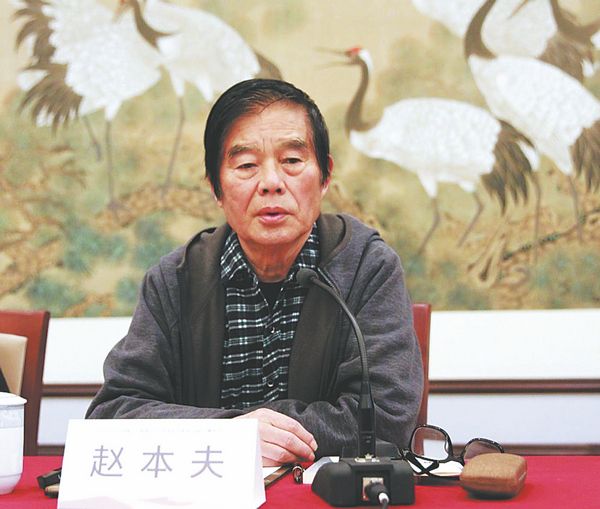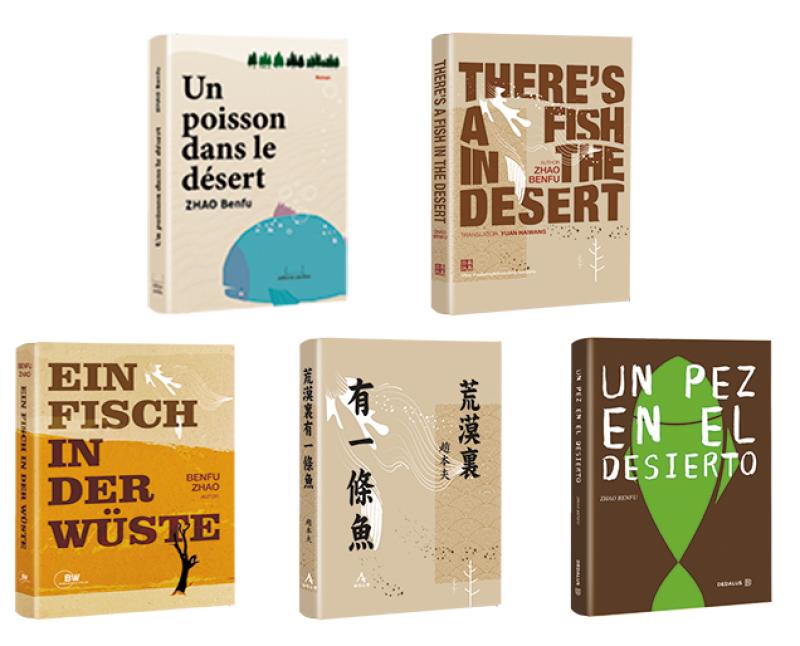Tale of prescience takes root
By: By FANG AIQING

Tale of prescience takes root

[Photo provided to China Daily]
It seems like a contradiction at first, a glaring anomaly. But There is a Fish in the Desert has a style resembling ancient myth and allegory, providing a unique insight with vivid imagination, says Ka Bun, from Hong Kong company Alishan-Cloud E-commerce Co, publisher of the upcoming traditional Chinese version of the novel.
He was addressing a seminar on the overseas publication of the work, held in Nanjing, capital of East China's Jiangsu province, on April 26.
The seminar was co-hosted by the International Literary Exchange Center of the Chinese Writers Association, the Belt and Road Academy of the Beijing Language and Culture University, the Jiangsu Writers Association and the Tianjin Publishing and Media Group.
Published in June 2020, There is a Fish in the Desert , set against the backdrop of constant upheaval between the mid-19th and the mid-20th centuries, tells the story of how, after a century of effort, people in a desert village managed to turn the area into an oasis.
It digs deep into the folk customs rooted in an agrarian society and the virile, imposing cultural features of the Central Plains region.

The author Zhao Benfu was known for previous works including A World Without Thieves .
The 2004 film adaptation by director Feng Xiaogang won a great many awards and nominations.
The "fish" in this novel is a metaphor for fertility and the "trees" symbolize the homeland. They represent the roots of the nation that have been passed down through the generations and are infused into the blood, Zhao says.
According to the Baihua Literature and Art Publishing House, publisher of the book, a French version of the novel has been published, while English, Spanish, German and traditional Chinese versions will be released in the near future.
Speaking of why they're introducing the book to Spanish readers, Eugenio Lopez Arriazu, co-founder of the publishing house Dedalus Editores, says it's a novel of adventure, with epic heroism and concern for people at the grassroots. He says it's a novel about life's hardships that precisely depicts people's struggles, and how they overcome the weaknesses in human nature.
One interesting aspect is that the novel encourages people to think about how to deal with their own life in a realistic manner, rather than simply by preaching, he says.
Aline Mittag, German translator of the book who teaches the language at Nanjing Normal University, says the biggest challenge was translating the names of the characters and certain places, because they bear specific meanings to help readers better understand the story.
Claude Payen, the French translator, says the author foresees the importance of planting trees in a story of the past, considering that there's currently been an urgency and popularity for planting trees in France.
According to critic Liang Hongying, the concern for a soilless, rootless and waterless world is universal; the issues raised in Zhao's work are not limited to China but encompass the whole world.




Comments are subject to this group's RED BOX RULES which can be accessed by clicking on this link -> or by clicking on this group's avatar located at the top right of the article page above, either of which will open this group's home page.
Although I'm not sure what prescience has to do with it, this is a book I want to read.
It sounds like a very interesting book.
I hope I can get a copy in English here, otherwise I'll have to ask my daughter in Toronto to mail me one.